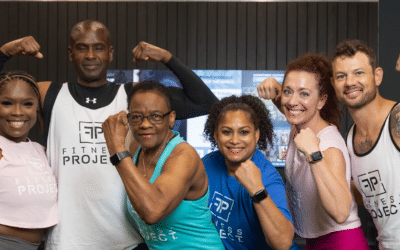Mental Health Mastery: Build Resilience, Manage Stress, & Nurture Emotional Balance

Mental Health Mastery: Build Resilience, Manage Stress, & Nurture Emotional Balance
Mental health isn’t just the absence of illness—it’s the foundation of how we think, feel, and navigate life. According to the World Health Organization (WHO), 1 in 4 people globally will experience a mental health condition in their lifetime, making proactive care more critical than ever. This guide, grounded in research from the American Psychological Association (APA), National Institutes of Health (NIH), and WHO, equips you with actionable steps to protect and strengthen your emotional well-being.
What Is Mental Health, Really?
The WHO defines mental health as a state of well-being where individuals can realize their abilities, cope with life’s stresses, work productively, and contribute to their community. It’s a spectrum: even people without diagnosed conditions can struggle with stress, anxiety, or burnout, while recovery from conditions like depression or PTSD is possible with support.
Common Challenges & Their Science
Anxiety and depression top the list of global mental health concerns (NIH, 2023). But what drives these struggles?
- Biological factors: Imbalances in neurotransmitters like serotonin (linked to mood regulation) or genetic predispositions play roles.
- Psychosocial triggers: Trauma, chronic stress, or major life changes (e.g., job loss, divorce) can disrupt emotional equilibrium.
- Environmental influences: Poor sleep, sedentary lifestyles, or social isolation (a risk factor 2x more impactful than obesity, per Harvard’s 80-year Grant Study) exacerbate vulnerability.
Prevention & Daily Resilience: 5 Actionable Strategies
You don’t need a diagnosis to prioritize mental health. Here’s how to build a buffer against life’s challenges:
1. Cultivate Mindfulness (Backed by APA Research)
Mindfulness-based stress reduction (MBSR) reduces activity in the amygdala (the brain’s “fear center”) by 34% (APA, 2022). Start small: 5 minutes daily of focused breathing (try the 4-7-8 technique: inhale 4 sec, hold 7 sec, exhale 8 sec) or a guided app like Headspace.
2. Strengthen Social Ties
The Grant Study’s decades of data confirm: strong relationships predict happiness and longevity. Schedule weekly calls with loved ones, join a local club, or volunteer—even small interactions boost oxytocin, the “bonding hormone.”
3. Prioritize Physical Health (The Mind-Body Link)
Your gut and brain communicate via the vagus nerve, and 90% of serotonin is produced in the gut (Johns Hopkins, 2023). Eat probiotic-rich foods (yogurt, kimchi) and aim for 150 minutes/week of moderate exercise—walking alone increases BDNF, a protein that repairs brain cells.
4. Set Boundaries
Chronic overcommitment spikes cortisol, the stress hormone. Use the “24-hour rule”: Before agreeing to a new task, ask, “Does this align with my values?” If not, practice saying, “I can’t take that on right now.”
5. Track Emotions
Journaling 10 minutes daily helps identify patterns (e.g., “I feel anxious after work emails”). The NIH recommends focusing on 3 positive moments each day—this trains your brain to notice joy, not just stress.
When to Seek Professional Help
Stigma around therapy persists, but 70% of people who access treatment report significant improvement (WHO). Consider reaching out if:
- Symptoms (sadness, fatigue, irritability) last 2+ weeks
- You’re withdrawing from social activities
- Daily tasks (work, self-care) feel overwhelming
Therapy isn’t just for crises—many use it to build communication skills or process life transitions. Platforms like BetterHelp or local community mental health centers offer affordable, accessible support.
A Key Insight: Mental Health Is for Everyone
One common myth? “Only ‘weak’ people need mental health care.” In reality, prioritizing your mind is as vital as visiting the doctor for a physical checkup. For students, this might mean time management tools; for parents, it could be 10 minutes of “me time” daily. Adapt strategies to your life stage—consistency matters more than perfection.
Start Today, Thrive Tomorrow
Mental health isn’t a destination—it’s a daily practice. Whether you try a new mindfulness exercise, call a friend, or schedule a therapy consult, small steps compound. Remember: You’re not alone. As the APA reminds us, “Seeking help is a sign of strength, not weakness.”
Your mental health is your superpower. Nurture it, and watch how it transforms every area of your life.

Mother's Wellness Tips: Nurturing Mind, Body, and Soul

Beginner Gym Workout Plan: 7 Exercises and Psychological Support

Unforgettable Fall Delights: Your Ultimate Guide to Autumn’s Magic 2025

Summer Youth Program: Keeping Kids FIT, HEALTHy, & Happy

FITNESS PROJECT's 3rd Birthday Celebration

Strength Training Basics for Beginners

Maximize Your Minutes: Unlock Your Fitness Potential with Powerful 30-Minute Workouts

The Best Warm-up & Recovery Workouts

Unleash Your Inner Beast with Bodyweight Training

